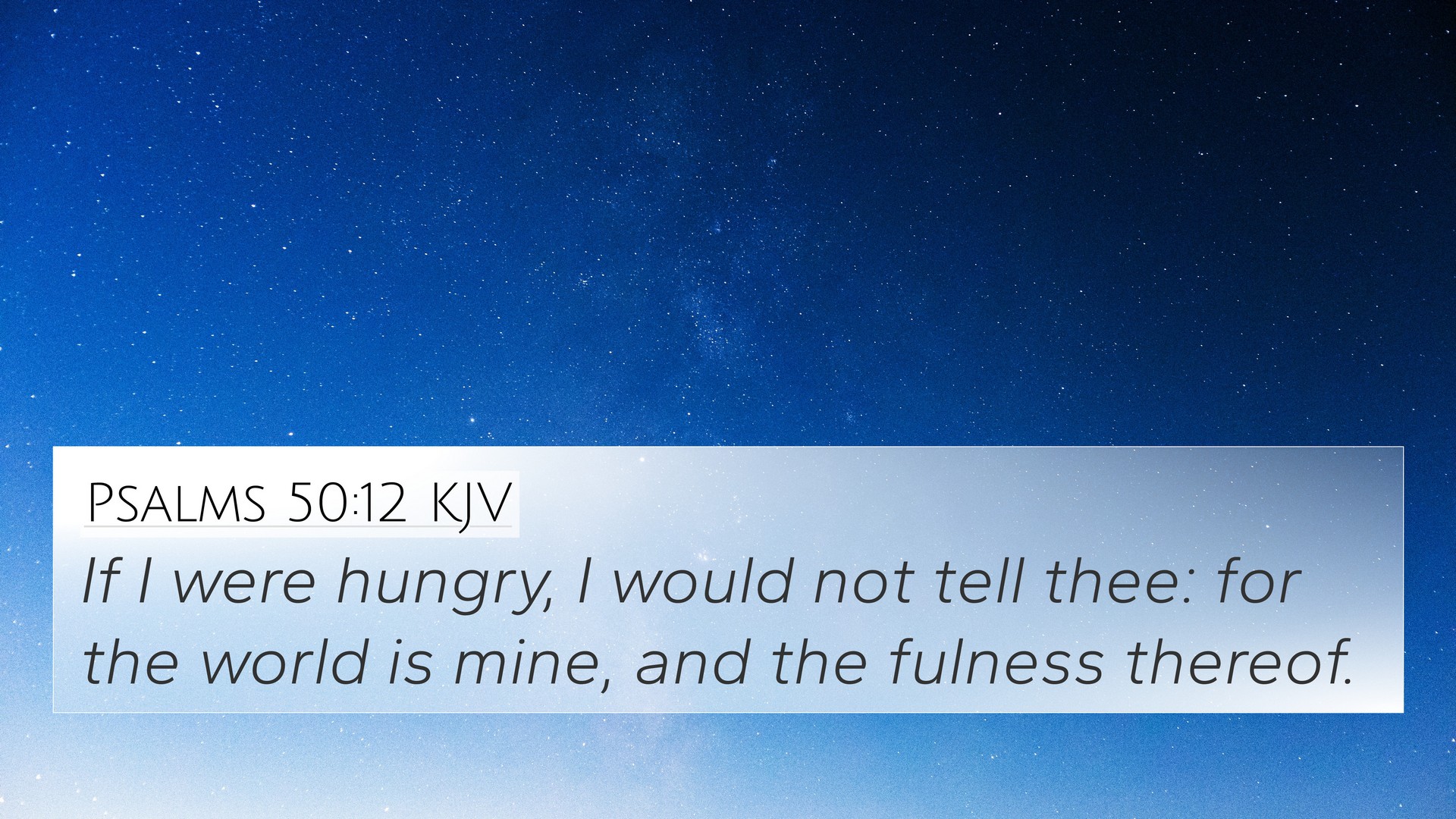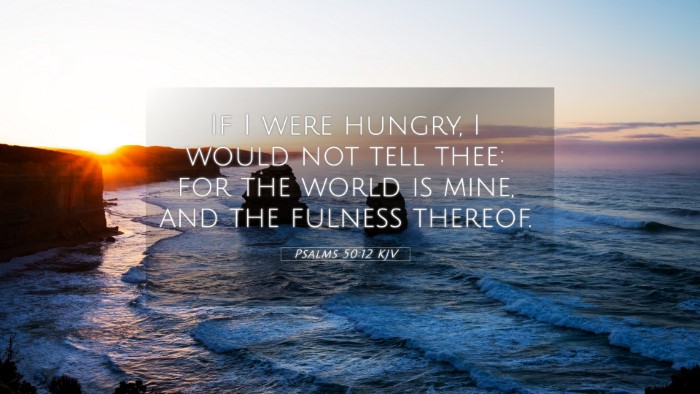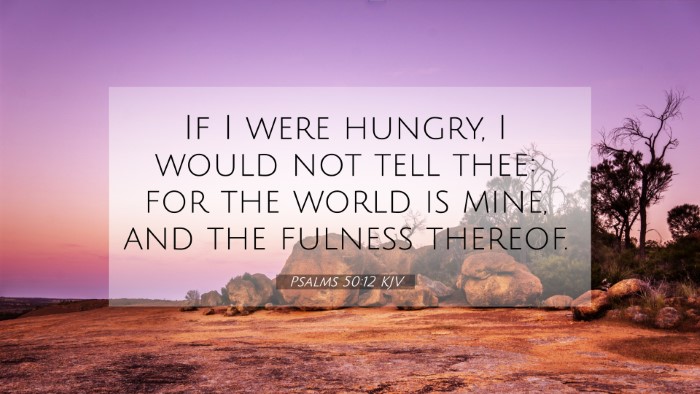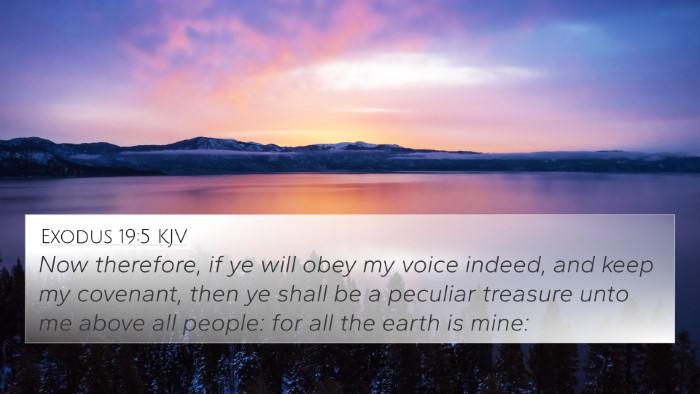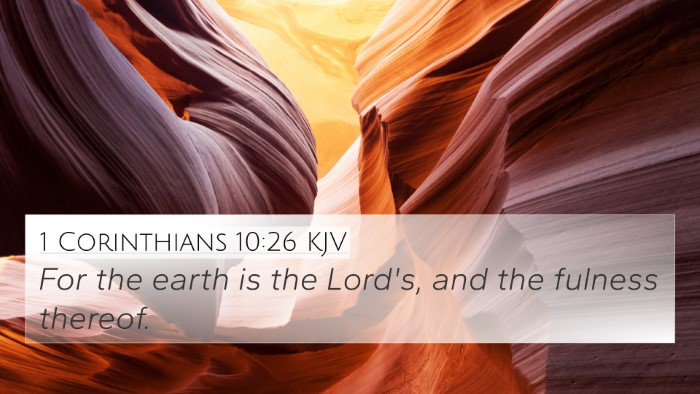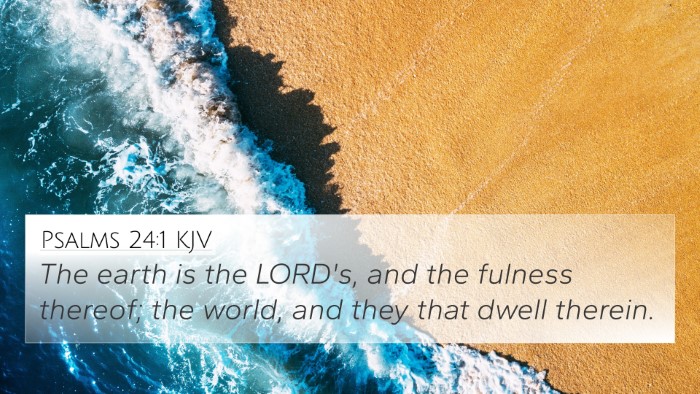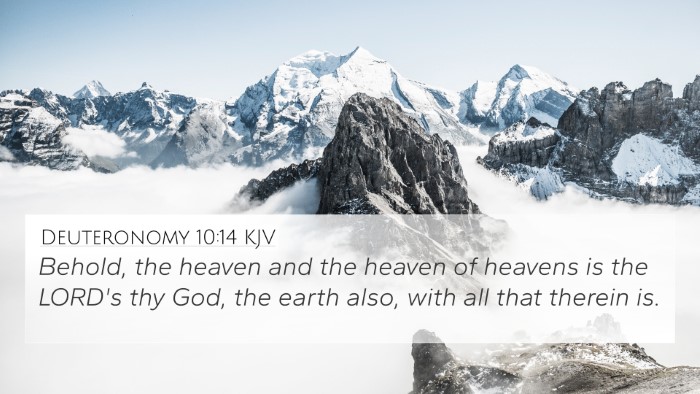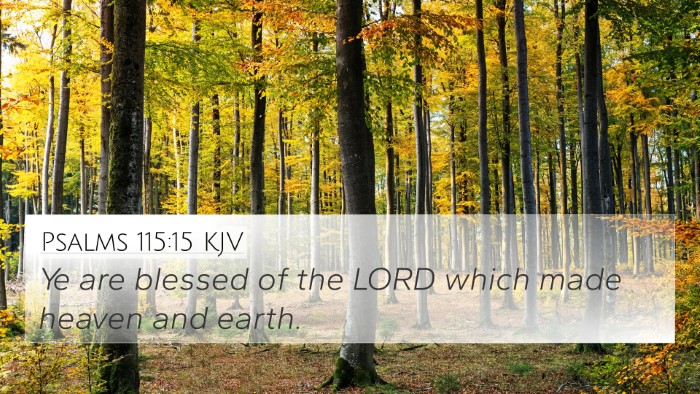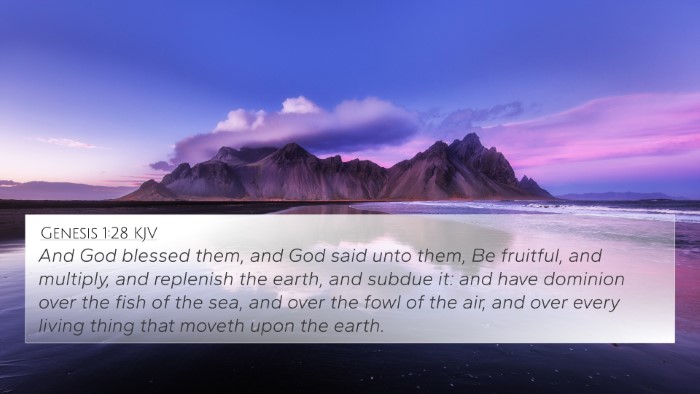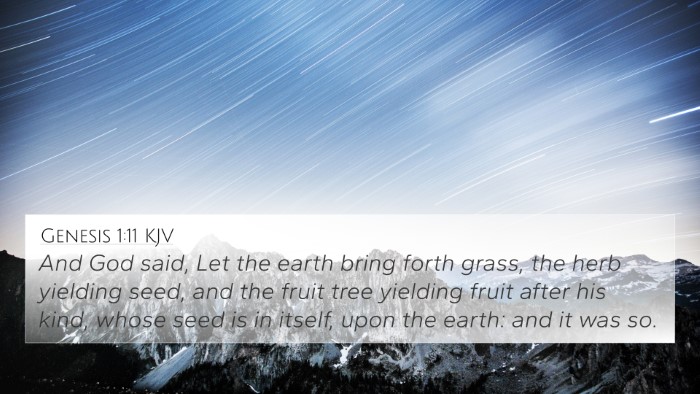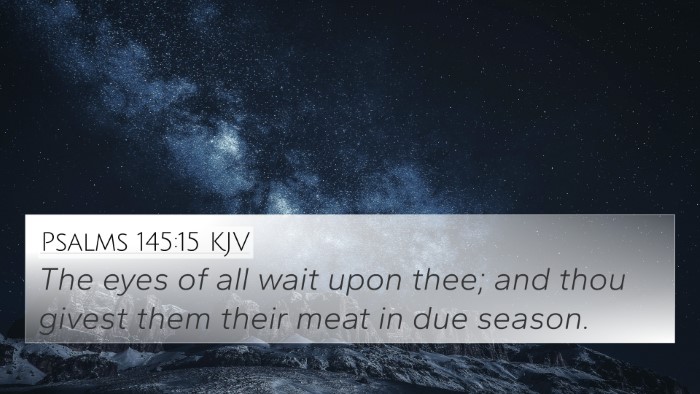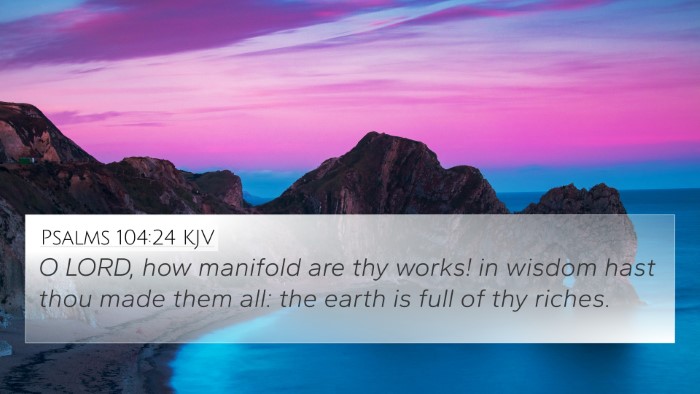Psalms 50:12 - Summary and Interpretation
Psalms 50:12 states: "If I were hungry, I would not tell you; for the world is mine, and the fullness thereof." This verse offers profound insights into God's sovereignty and sufficiency, emphasizing that He is not dependent on human offerings.
Meaning and Significance
This verse encapsulates the idea that God has everything He needs, as He is the Creator of all. When we analyze this in light of other scriptures, we see recurring themes about God's independence and the insignificance of material offerings in comparison to the heart's intent.
God's Sovereignty
The statement illustrates God's absolute sovereignty over creation. As Matthew Henry comments, God does not require anything from humanity to fulfill His needs; rather, He gives to us freely. Albert Barnes echoes this sentiment, noting that God's possessions are beyond our comprehension. Adam Clarke expounds that by claiming ownership of the world's fullness, God asserts His dominion over all things.
Human Offerings
The context of this verse is a reflection on why God rejects mere ritualistic offerings. It points to a critical theme in the Psalms—that God desires genuine worship over sacrifices devoid of sincerity. Henry emphasizes that while sacrifices were important, the condition of the worshiper's heart is paramount.
Material Needs vs. Spiritual Submission
The verse teaches that God is ultimately self-sufficient. Adam Clarke asserts that God does not need our offerings to sustain Him, but rather seeks our submission and obedience. This underscores a broader biblical theme—God desires a heart devoted to Him, not just the outward form of worship.
Cross-References for Psalms 50:12
- Job 41:11: "Who has preceded me, that I should pay him? Everything under heaven is mine." This aligns with God's ownership of all creation.
- Acts 17:25: “Neither is worshipped with men’s hands, as though he needed any thing, seeing he giveth to all life, and breath, and all things.” Here, Paul emphasizes God’s independence from human provisions.
- 1 Corinthians 10:26: "For the earth is the Lord's, and the fullness thereof." This verse reinforces the idea of God’s ownership of all creation.
- Matthew 9:13: "But go ye and learn what that meaneth, I will have mercy, and not sacrifice..." This indicates God's preference for mercy over ritual.
- Isaiah 1:11: "To what purpose is the multitude of your sacrifices unto me? saith the Lord..." God challenges empty rituals, highlighting His desire for a repentant heart.
- Micah 6:6-8: "Wherewith shall I come before the Lord, and bow myself before the high God?..." This passage emphasizes that God requires justice, mercy, and humility instead of ritual offerings.
- Psalm 51:16-17: "For thou desirest not sacrifice; else would I give it: thou delightest not in burnt offering. The sacrifices of God are a broken spirit..." Points to the heart’s condition being more valuable than offerings.
- Hebrews 10:4: "For it is not possible that the blood of bulls and of goats should take away sins." This teaches about the insufficiency of animal sacrifices compared to Christ's sacrifice.
- Luke 21:1-4: The widow's offering reflects that God values the heart's intention and sacrifice over the amount of the gift.
- Philippians 4:19: "But my God shall supply all your need according to his riches in glory by Christ Jesus." Reminds us of God's provision and sufficiency in our lives.
Connecting Themes in Scripture
When analyzing Psalms 50:12 through a thematic lens, one recognizes that it resonates with various biblical themes: God's sovereignty, the nature of true worship, and His expectations from humankind. By engaging in cross-referencing biblical texts, we uncover these interconnected themes that help to deepen our understanding of Scripture.
Tools for Bible Cross-Referencing
To explore the connections between Bible verses more thoroughly, one can utilize several tools:
- Bible Concordance: A comprehensive index that helps identify terms and their occurrences throughout the Bible.
- Bible Cross-Reference Guide: Resources that map relevant scripture to similar themes or ideas.
- Cross-Reference Bible Study: Methods allowing deeper engagement with the text through interconnected verses.
- How to Use Bible Cross-References: Learning to identify and interpret connections between verses enhances understanding.
- Bible Chain References: Creating a narrative through verses linked by thematic elements.
- Comprehensive Bible Cross-Reference Materials: Various books and resources focused on interlinking scripture for detailed study.
Conclusion
Psalms 50:12 serves as a reminder of God’s self-sufficiency and the heart of true worship. By exploring the inter-Biblical dialogue and drawing connections through comparative Bible verse analysis, readers can uncover the rich, overarching themes of the Bible. The teachings within this verse and its related scriptures illuminate God's desire for authentic communion over mere ritualistic practices.
In seeking to answer questions such as “What verses are related to Psalms 50:12?” or “How do Psalms 50:12 and Romans 12:1 connect?”, believers can deepen their understanding and appreciation for God's word through structured study and reflection.
